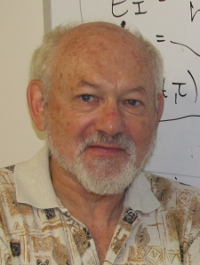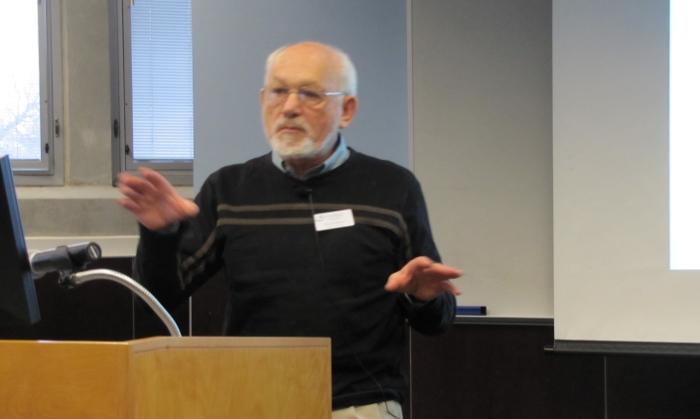NIMBioS Seminar Series
In conjunction with the interdisciplinary activities of the National Institute for Mathematical and Biological Synthesis (NIMBioS), a seminar series on topics in mathematical biology will be hosted at NIMBioS every other Tuesday at 3:30 p.m. (unless otherwise noted) in the Hallam Auditorium, Room 206, Claxton Building, 1122 Volunteer Blvd. Seminar speakers will focus on their research initiatives at the interface of mathematics and many areas of the life sciences. Light refreshments will be served in the 1st floor visitor breakroom beginning 30 minutes before each talk. Faculty and students from across the UT community are welcome to join us.

Time/Date: Tuesday, February 12, 2013, 3:30 p.m.*
Location:
Room 206, Claxton Building, 1122 Volunteer Blvd.
Speaker:
Dr. David Gurarie, Mathematics, Center for Global Health and Diseases, Case Western Reserve Univ.; NIMBioS Sabbatical Fellow
Topic:
Agent-based approach to malaria: immunology, population genetics and evolution of virulence
Abstract:
Multiple factors determine spread of parasites in host populations. They include within-host level (invasion, resource competition, immune regulation), and population level (transmission environment, parasite-vector interactions). The combined effect of these factors drives parasite evolution and selection. The talk will review some conventional theories of host-parasite evolution. Then I shall outline an agent-based approach that allows integration of multiple levels and processes. These models will be applied to study virulence selection for malaria-type parasites.
*Join us for refreshments at 3 p.m. in the 1st floor visitor breakroom.
Seminar Flyer (pdf)
For more information about this and other NIMBioS Seminars, visit /seminars.

NIMBioS
1122 Volunteer Blvd., Suite 106
University of Tennessee
Knoxville,
TN 37996-3410
PH: (865) 974-9334
FAX: (865) 974-9461
Contact NIMBioS


